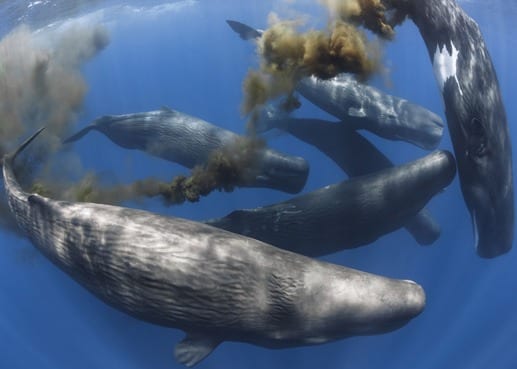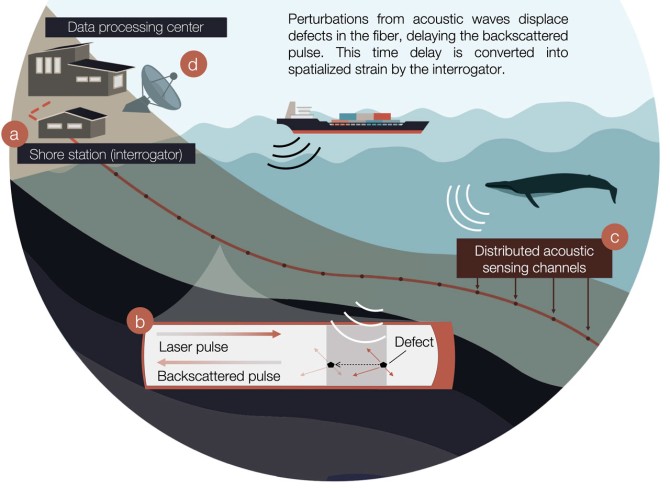“As long-lived species, they enhance the predictability and stability of marine ecosystems”
“Consider the subtleness of the sea; how its most dreaded creatures glide under water, unapparent for the most part,” wrote Herman Melville in Moby Dick. Today, we no longer dread whales, but their subtlety remains. “For a long time, whales have been considered too rare to make much of a difference in the oceans,” notes University of Vermont conservation biologist Joe Roman. That was a mistake.
In a new paper, Roman and a team of biologists have tallied several decades of research on whales from around the world; it shows that whales, in fact, make a huge difference — they have a powerful and positive influence on the function of oceans, global carbon storage, and the health of commercial fisheries. “The decline in great whale numbers, estimated to be at least 66% and perhaps as high as 90%, has likely altered the structure and function of the oceans,” Roman and his colleagues write in the July 3, 2014, online edition of Frontiers in Ecology and the Environment, “ but recovery is possible and in many cases is already underway.”
“The continued recovery of great whales may help to buffer marine ecosystems from destabilizing stresses,” the team of scientists writes. This recovered role may be especially important as climate change threatens ocean ecosystems with rising temperatures and acidification. “As long-lived species, they enhance the predictability and stability of marine ecosystems,” Roman said.
Read more . . .
The Latest on: Whales
[google_news title=”” keyword=”Whales” num_posts=”10″ blurb_length=”0″ show_thumb=”left”]
via Google News
The Latest on: Whales
- This Is What Whales Are Betting On Caterpillaron April 26, 2024 at 7:16 am
Investors with a lot of money to spend have taken a bearish stance on Caterpillar CAT. And retail traders should know. We noticed this today when the trades showed up on publicly available options history that we track here at Benzinga. Whether these are ...
- More than 100 stranded whales return to the sea after rescue effort on Australian coaston April 25, 2024 at 3:49 am
More than 100 long-finned pilot whales that beached on the western Australian coast have returned to sea while 31 died on the shore, according to a researcher.
via Bing News











